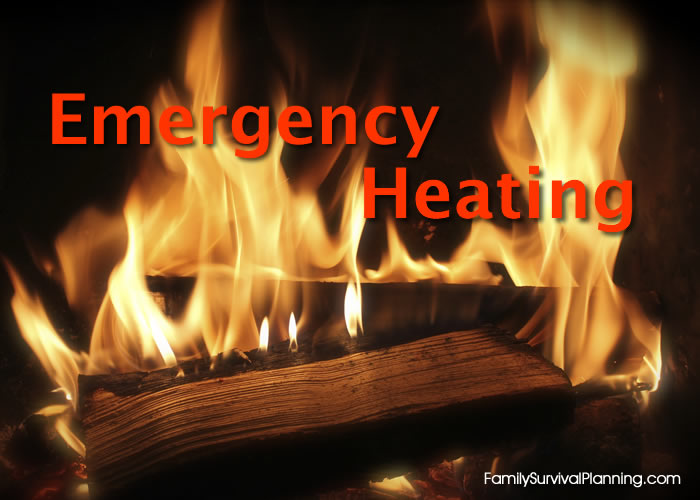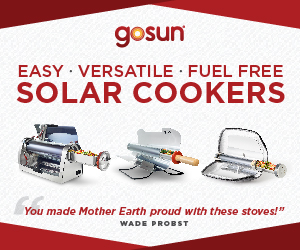- HOME
- Survival Gear
- Led Flashlights
Why You Should Replace
Your Old Flashlights

Flashlights are a pretty mundane subject to most people, at least they used to be. With the invention of the white LED, flashlights have become revolutionary devices, especially for Preppers.
We currently own several well-made, expensive, machined aluminum flashlights, but all things considered, they really don't compare well to modern LED flashlights.
We still own those big, machined aluminum flashlights, but we have "replaced" every one of them with smaller, brighter, more energy efficient, LED flashlights.
Invest in emergency food storage now and enjoy peace of mind for the next 25 years. Don't miss out on the savings!
Old Flashlights:
- were/are relatively expensive,
- use incandescent light bulbs that produce both light and heat,
- are large and heavy,
- use large, expensive, "D" size batteries,
- consume battery power very quickly.
Modern LED Flashlights:
- are usually not very expensive,
- produce a very bright, white light that produces virtually no heat,
- are small and lightweight,
- use small, inexpensive "AAA" size batteries,
- "sip" electricity from their batteries very slowly.
As if the items in the lists above were not enough, the big, machined aluminum flashlights are also inferior to modern, LED flashlights because:
- Incandescent bulbs draw lots of electricity (with much of the energy lost to heat) compared to white LEDs, for the same amount of light produced.
- Especially when lit, incandescent bulbs' filaments are prone to breakage from a sudden G force, like the dropping of a flashlight. LEDs are much more robust.
LED flashlights come in many configurations with many features. Some examples:
- flashlights, trouble lights, or both in one unit,
- signaling capability, like blinking or strobing,
- white or other color LEDs,
- variable brightness,
- varying battery lifetimes,
- metal or plastic housings,
- lanyards and/or other attachments,
- and more.
Some things to look for when you shop for an LED flashlight:
- Features and configurations;
- The brightness expressed as the number of Lumens;
- The number of hours the flashlight will operate before the batteries are exhausted.
A word of caution: White LEDs are extremely bright and may cause permanent eye damage. Do not shine them into the eyes of people or pets. Some flashlights/trouble lights have warnings about this on their packaging, some do not. Take the warnings seriously.
Trouble Lights
We own several LED flashlights with trouble lights also built into them. Those are really handy because sometimes we need a spread beam instead of a narrow beam and, with a unit containing both, you won’t have to go fetch a different light.
We also own a few LED trouble lights that are not flashlights. These units are rechargeable using 120 Volt A/C. I cannot praise them enough. They are small, lightweight, portable, and exceptionally bright.
One of the units has two settings: 1000 Lumens and 500 Lumens. On the 1000 Lumens setting, it will run for five hours on one charge! On the 500 Lumens settings, it will run for 10 hours! We cannot really communicate how bright this unit is, but to give you some idea, when we took it outside in the dark, it will light up our backyard as well as multiple neighbors' yards on either side of us! It has a serious warning about permanent eye damage from looking at the LED when it is operating. Believe it! I love this unit when performing oil and filter changes on our cars in a dark garage.
Headlamps
I also strongly recommend the purchase of an LED Headlamp. Modern headlamps are very popular with the outdoors and military communities, and are not the massive miners' headlamps of years past. Most are AAA battery powered but there are other options. They are generally very robust and reliable, and often have colored light or strobe lights.
We purchased the Energizer brand — they're a good combination of value and features.
Batteries
Modern versions of name-brand alkaline batteries now have a guaranteed shelf life of 10 years, an excellent quality for any battery used by preppers. So if you buy several hundred “AAA” size batteries, they won’t cost you an entire paycheck and be dead in 12-18 months.
What about rechargeable batteries?
A true fact about rechargeable NiCd or NiMh batteries is that they only produce 1.2-1.3 volts per cell vs. 1.5-1.6 volts for standard alkaline or LiOn batteries. If a device requires a specific voltage, this can effect their performance. More than that, some rechargeables don't provide sufficient capacity to power devices that require sustained high current levels.
Some types of rechargeables will lose their charge if left in a hot vehicle in summer, as well as below freezing conditions. For life-saving equipment, use professional quality, aviation or public safety grade batteries that are engineered for your specific application.
Stock up on plenty of AA and AAA batteries because these days, many electronic gadgets such as, GPS, radios, lanterns, and nearly every size LED flashlight uses these sizes. High quality, name brand AA and AAA batteries are available almost everywhere, and almost anybody can afford to stock up on them.
For prepping, it is important to have battery powered units with plenty of spares. Rechargeable trouble lights have their place, but can only be repeatedly useful if one has a way to generate your own electricity like we have.

















